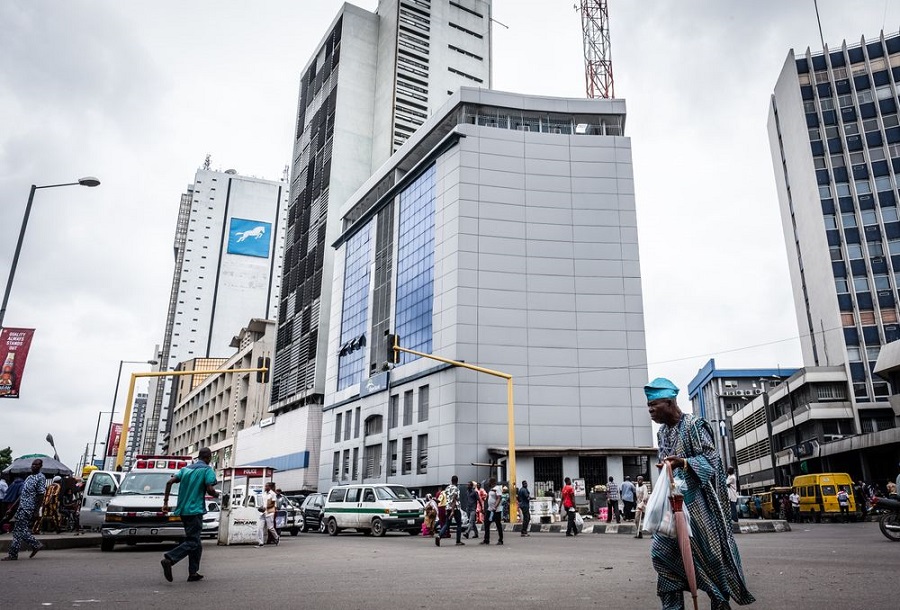The adverse effect of the COVID-19 pandemic continues to take its toll on all sectors in Nigeria, including Aviation, Oil & Gas, and Entertainment amongst others and the Real Estate sector is not left out.
The changes made to the ‘8pm to 5pm’ white-collar jobs, due to the imposed lockdown as of April, 2020 has had a ripple effect on the sector. As the axiom goes, “When life throws lemons at you, make lemonades.” This exemplifies how corporate organizations in Nigeria have been able to turn the pandemic woes in their favour. In what seemed like a pipe dream about a year ago employers now grant access to their employees to work from home wherever possible.
READ: Is this Pandemic the death of coworking Spaces?
In one of the top Power distribution companies in Lagos, the staff rotate their ‘work from home’ initiative on a daily basis; such that when a staff resumes at the office today, they are scheduled to work from home the next day. In other notable cases, firms whose work description allows for it, the staff work from home permanently, unless when they have something imperative to do at the office premises.
This huge shift in the work structure has necessitated employers to rethink the need for their large rented office spaces, and many opting and negotiating for smaller office space, after their current rent expired.
READ: Experts state how COVID-19 affects Nigerian real estate sector
With a major shift as this, Property owners are bound to suffer some setbacks, especially at a time when economic hardship has made Nigerians penny-wise. They feel the weight and have been forced to brainstorm on possible solutions to keep their property generating money, or risk a large empty space of air for months and possibly years.
Nairametrics interviewed several Property Managers in Lagos, and some said it became non-negotiable for them to introduce attractive incentives, following incessant pleas by their tenants to reduce the rent, and in some cases have asked to share the office space with another tenant to reduce cost.
READ: Key ‘side-hustles’ Nigerian Bankers supplement their income with
Head, Administrative Department in an oil servicing firm around Norman Williams street Ikoyi, Lagos, John, explained that his firm had approached the property manager that it wanted to reduce the occupied spaces from three floors to a floor and half after the rent expired in July 2020.
He said, “We had to take the decision when it became obvious that we do not need that much space because more than half of our staff have been working from home since the lockdown. The truth is that they were more productive working from home than from the office. When we approached the property manager, initially he was delighted hoping to let out the space in no time. But when it dawned on him that more corporates were investing more in remote working or digital deliveries, he called back after two weeks, asking us to occupy two floors and reduce our tenancy period from 4 years to 2 years.”
READ: Bank’s Credit to Nigeria’s Real Estate sector hits 5-year low
In his own case, David, a property manager of one of the e-commerce pharmacies, told Nairametrics that the property owner, who he represents, also agreed to focus more on flexibility in leases and much shorter terms, especially as the pharmacy decided to shut two of its centres, as it introduced instant delivery service where orders could be placed via WhatsApp or phone calls during the lockdown.
He said, “The new normal in the real estate sector is that several corporate firms had realised they could achieve more either working from home or implementing innovations like instant delivery after orders were taken via social media tools.We had to consider flexible leases because it is better to get something from them than seeing vacant office spaces for months or years.”
READ: Working from home: Nigerian bankers share their experiences
Post-COVID: Experts share expectations
Estate Intel, a real estate and construction information portal
In its recent report titled, ‘Nigeria’s Real Estate and COVID‘ it stated, “The future of work has always been remote, however, the COVID-19 pandemic has accelerated the pace at which traditional workplaces consider this option. Remote work options are expected to become a more standard requirement from employers, leading to lower space requirements and offices more focused on collaborative spaces. Many landlords have been incorporating attractive tenant incentives to remain competitive in recent years but we expect incentives moving forward to focus more on flexibility in leases in lieu of creative discounts.”
Suzanne Oluwole, Partner at Trillium Real Estate
“Occupiers and investors are adopting a maintain status quo stance where possible, whilst they wait and see. The full effects of the disruption caused by the pandemic still to come will transcend any shock wave the economy has ever faced before, and real estate is not immune. The trajectory of recovery we had been experiencing has been greatly affected and because this time it’s global, it may take some time to return to pre-COVID-19 levels.”
In all, it is expected that reduced usage due to the lockdown and pandemic will encourage occupiers to request concessions, while uncertainties will slow decision making.




















